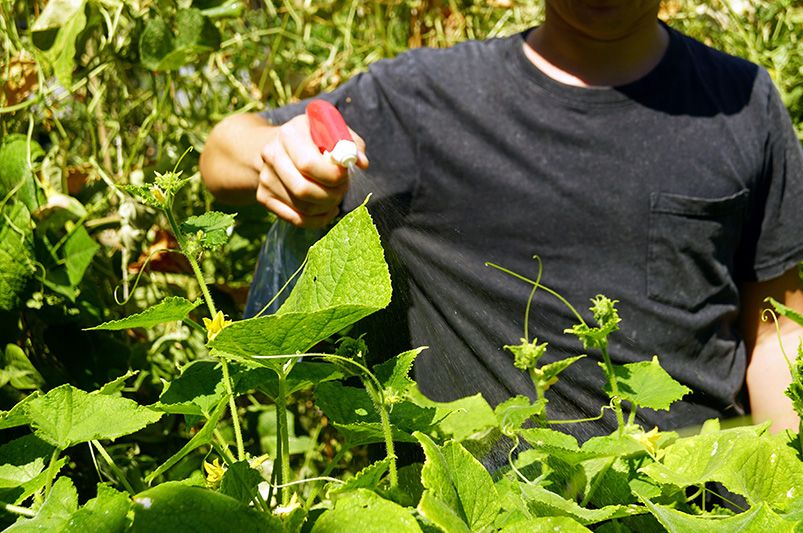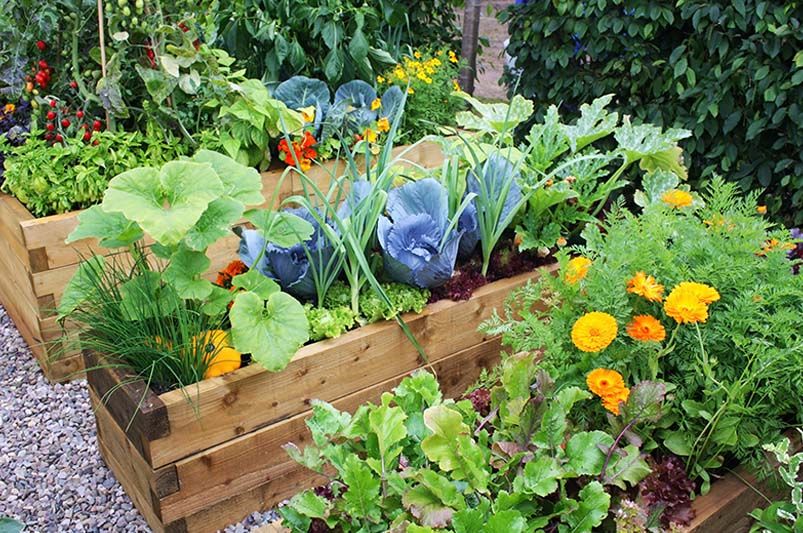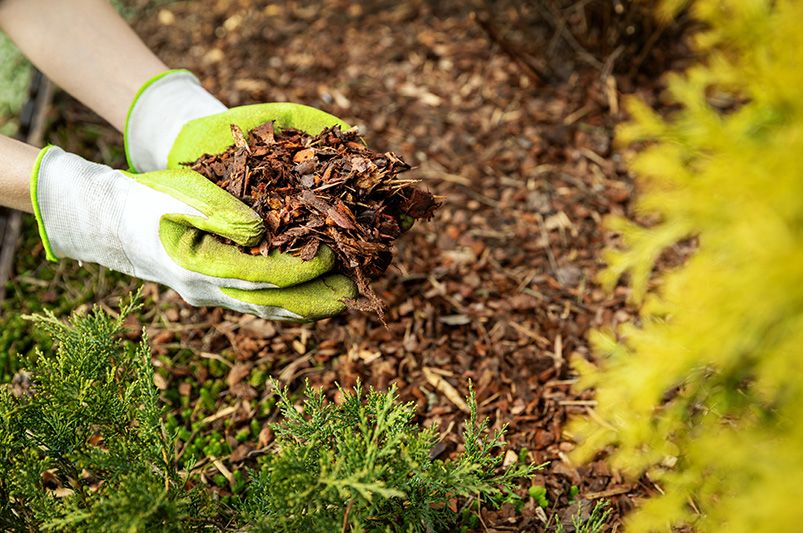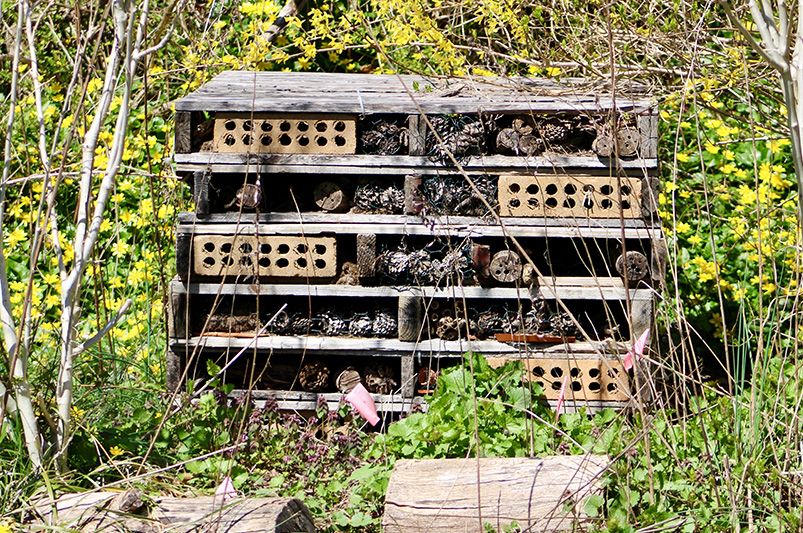
Eco-Friendly Pest Control Tips for Your Garden
Published: 27/10/2024 | Updated: 24/10/2024
Key Highlights
- Discover the importance of sustainable gardening for promoting a healthy garden ecosystem.
- Learn how eco-friendly pest control methods benefit the overall ecosystem by supporting beneficial insects.
- Identify common garden pests and recognize early signs of infestation to take proactive measures.
- Explore natural remedies like homemade solutions and beneficial plants that repel unwanted insects.
- Understand the significance of encouraging beneficial insects through simple practices like building insect habitats.
Introduction
Start a journey to better gardening with eco-friendly pest control methods. By understanding your garden ecosystem, you can create a safe space for beneficial insects and reduce pest problems. Learn to spot common garden pests early. This will help you use natural pest control solutions like neem oil and plants such as sweet alyssum. Choose a complete approach to pest management. This will protect your plants and care for the environment.


Understanding Eco-Friendly Pest Control

To use eco-friendly pest control in your garden, it's important to know about sustainable gardening. By learning how the garden ecosystem works, you can use natural pest control methods. These methods help solve pest problems and keep your plants healthy. Adding beneficial insects, natural predators, and a variety of plants is key to having a successful garden without chemical pesticides. When you understand these eco-friendly ways, you can create a balanced and growing garden ecosystem.
The Importance of Sustainable Gardening Practices
Sustainable gardening is very important for keeping the garden ecosystem in balance. When gardeners use eco-friendly pest control methods, they can protect beneficial insects and other natural predators. This way, they can manage pest outbreaks effectively. Using sustainable methods is good for the health of plants and helps the environment as a whole. By choosing natural remedies instead of chemical pesticides, gardeners support a healthy relationship between plants and insects. This creates a strong and thriving garden ecosystem.
How Eco-Friendly Methods Benefit the Ecosystem
Using eco-friendly pest control methods helps your garden and keeps the garden ecosystem healthy. You can attract beneficial insects and use organic remedies like neem oil and garlic spray for natural pest control. This helps create a better environment. Reducing chemical pesticides protects natural predators and pollinators that are important for a successful garden ecosystem. Choosing eco-friendly practices supports a lasting and balanced connection between your garden and the environment around it.
Identifying Common Garden Pests
A key step in eco-friendly pest control is finding common garden pests. Spotting early signs of infestation is very important for handling the problem effectively. Knowing how biodiversity helps in pest management can keep your garden ecosystem healthy. Gardeners can solve pest problems naturally. They can use methods like beneficial insects and natural predators to help their plants grow strong. By taking these steps, you can achieve a more sustainable and balanced way of dealing with pests in your garden.
Recognizing Early Signs of Infestation
Look out for yellow leaves, holes in the leaves, or sticky stuff on your plants. These signs can mean there is a pest problem. You should also watch for tiny bite marks on young plants and wilting for no clear reason. These are early signs of an infestation. Pests like aphids produce a sticky substance called honeydew, which shows they are there. Check under the leaves often for eggs or bugs. Finding pests early is important to stop problems before they hurt your garden ecosystem.
The Role of Biodiversity in Pest Management
Diverse ecosystems help keep pest numbers down. This makes biodiversity important for good pest management. When there are many types of plants, helpful insects can live and hunt harmful pests. This helps keep a balanced garden ecosystem. Gardeners can reduce pest problems without using chemical pesticides by growing a mix of plants and insects. Planting different kinds of plants brings in beneficial bugs like ladybug larvae and lacewings. These bugs help protect gardens from common pests.

Natural Remedies for Pest Control
Homemade solutions like garlic spray and neem oil are great natural ways to control pests. These options are chemical-free and help protect your garden ecosystem. Helpful plants such as sweet alyssum and yarrow can keep pests away. Using these eco-friendly methods allows you to create a balanced space where beneficial insects can thrive. This keeps a natural part of pest control in your garden.
Homemade Solutions for Pest Deterrence
Looking for good homemade ways to keep pests away from your garden? You can try using garlic spray or neem oil to get rid of unwanted insects naturally. These DIY solutions are safe for your plants and good for the earth. You can also use essential oils like mint or thyme to help keep pests away without hurting the garden ecosystem. By using these natural pest control methods, you protect your plants and help your garden stay healthy.
Beneficial Plants That Repel Unwanted Insects
Planting good plants like sweet alyssum, garlic, chives, and coriander in your garden can help keep away unwanted bugs. These plants give off smells that drive away pests like aphids, carrot flies, and cabbage moths. This creates a natural wall against these annoying bugs. By adding these plants to your garden, you will not only make it look nicer but also help the environment by cutting down on the use of chemical pesticides. Using these plant friends is an easy and effective way to keep garden pests under control naturally.
Encouraging Beneficial Insects

One great way to keep your garden healthy is by attracting good insects. You can invite pollinators like bees and helpful bugs like ladybugs. These insects can help keep pests away in a natural way. You can make spaces, called insect hotels, to give them a safe place to live. By bringing together different types of insects and making your garden friendly for them, you can lessen the use of chemical pesticides. This helps create a better garden ecosystem and a more natural way to control pests.
How to Attract Pollinators and Predatory Insects
To attract pollinators and helpful insects to your garden, plant different flowers like sweet alyssum and herbs like thyme and mint. These plants create a good home for beneficial bugs, such as lacewings and ladybug larvae. Also, do not use chemical pesticides because they can harm these important insects. Build a friendly space by adding various plant types. This will attract many pollinators, such as bees and butterflies, which will help with natural pest control.
Building Insect Hotels and Other Habitats
Create welcoming spots in your garden for helpful insects. You can do this by building insect hotels and other homes. These structures give shelter and places to breed for natural predators like ladybugs, lacewings, and parasitic wasps. Use things like wood, hollow stems, and pine cones to draw in and support these useful bugs. When you help these insects thrive, you help keep a healthy balance in your garden ecosystem. This will naturally help with pest control and boost pollination.
Preventative Measures Against Pests
Crop rotation and companion planting help prevent pest problems. When you change the types of plants in different spots, it can disrupt how pests breed and lower the chances of an infestation. For example, planting basil with tomatoes can keep pests away and improve the garden ecosystem. Using the right watering and mulching methods also helps plants stay healthy, making them less likely to face pest issues. These eco-friendly practices support a strong garden and reduce the need for chemical pesticides.
Crop Rotation and Companion Planting
By changing the types of crops planted and using companion planting, gardeners can handle pest problems in a natural way. Crop rotation can confuse insects that like certain plants, helping to stop pest outbreaks. Companion planting means growing plants together that help each other, like putting garlic next to roses to keep aphids away. This method cuts down the need for chemical pesticides and helps create a healthy garden ecosystem. Think about using these practices for better pest control that is good for the environment.
Proper Watering and Mulching Techniques
To keep a healthy garden ecosystem, you need to water and mulch your plants properly. Good watering helps plants grow strong. This makes them less likely to have pest problems. Mulching keeps the soil wet and reduces weeds. Fewer weeds mean less competition for nutrients. Using these natural pest control methods can help support beneficial insects and keep harmful pests away. Always remember, a healthy garden starts with good watering and mulching.
Conclusion
Using eco-friendly pest control helps your garden and the whole ecosystem. By bringing in beneficial insects and using natural solutions, you can handle pest problems without hurting the environment. It's also important to use sustainable gardening practices like crop rotation and companion planting. These methods are key for long-term pest control. A healthy garden ecosystem needs balance and variety, so take care of your plants and beneficial bugs. With these strategies, you can have a lively garden while respecting nature's design.
Frequently Asked Questions
What Are the Most Effective Natural Pesticides?
To fight garden pests in a natural way, think about using neem oil. It works well against many pests. You can also use diatomaceous earth for hands-on pest control. Garlic spray is another good option to keep insects away. These choices are kind to both your plants and the environment.
Need Assistance for a Complete Landscape Makeover?
Shrubhub’s landscape design packages can significantly transform the lives of homeowners by delivering customized, professional landscaping plans tailored to their unique space and personal style. With the ease of online collaboration, you are guided step-by-step through a design process that fundamentally reshapes your outdoor environment. The result is an aesthetically pleasing and functional outdoor living area that maximizes the potential of your property.


